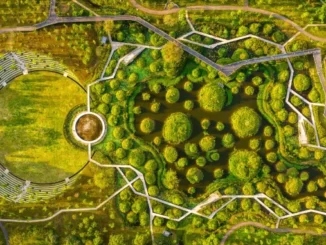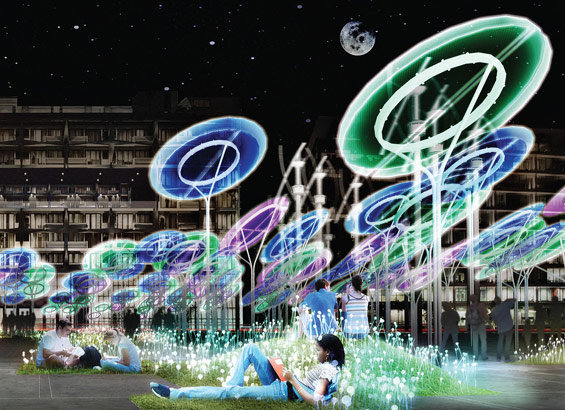
This project is a speculative proposal meant to incite a civic examination of the use of space in downtown Las Vegas. The city has a long and continuing history of private investment in development; yet little of this growth by developers or the city investment resulted in public spaces in the downtown.
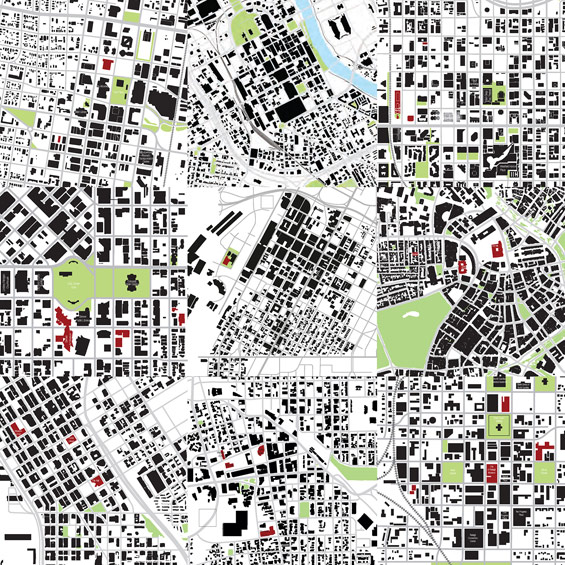
Similar cities in size, or aspirational cities, have much more public space/park space in their downtowns than Las Vegas; they also have museums and cultural institutions linked into a walkable context close to civic institutions such as City Hall. A great city must have a great downtown, and the civic core is critical to the long-term health of the city.
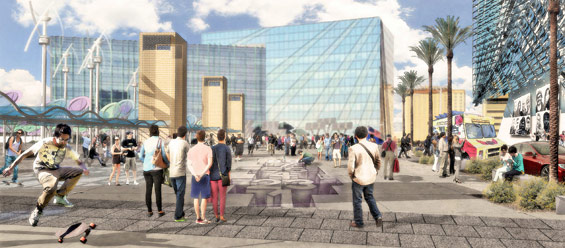
The proposed scheme has two parts; the civic square, and an ‘art trail’ fitting into the city’s Centennial Plan. Challenges to these types of plans in Las Vegas include: lack of consistent use of codes (or lack thereof), the high summer temperatures, no coherent district connection, and the paucity of water. Assets include vacant buildings and lots, an abundance of solar energy, a burgeoning downtown investment and the new City Hall.
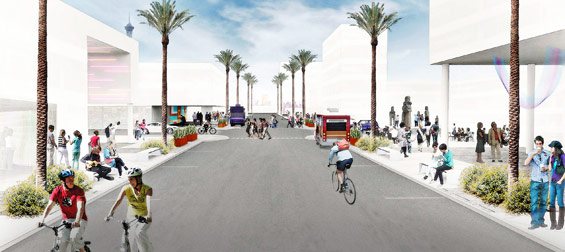
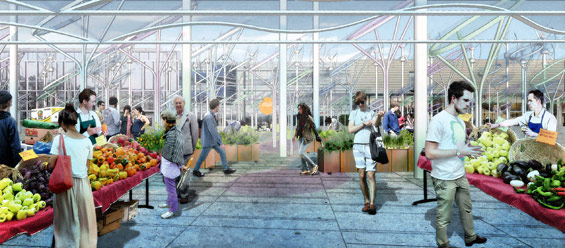
To the south of City Hall is the 18b – the city arts district. The City’s plan is to link the arts district to City Hall and Casino District by way of an ‘Art Trail’ featuring energy arts. Our scheme includes the art trail terminating into a City Square linked to the new City Hall. We propose a new museum (national or international clients have interest) to the east side of the City Square, and new mixed use buildings to the south and west of the square. This proposal links landscape and buildings to create a walkable downtown environment.
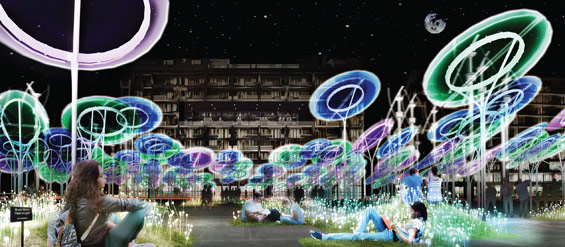
The art trail and park features art that generates energy to power the new buildings and the park. We use solar trees, and Vertical Axis Wind Turbines to generate as surplus of energy for use and create shade. Cool towers create places fit for year round occupation. New buildings use a form-based code to minimize heat gain and incorporate art into the fabric of the city in public-private spaces. New buildings make for walkable streets accessible to multi-modal transportation.
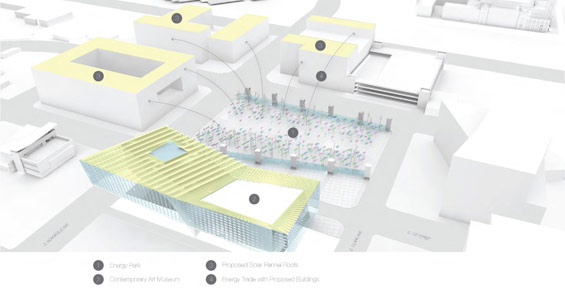
The power generating features create an urban forest and garden without needing to use water for irrigation. These elements mimic natural landscapes, providing shade and comfortable outdoor spaces while generating energy for the park and the neighboring buildings.
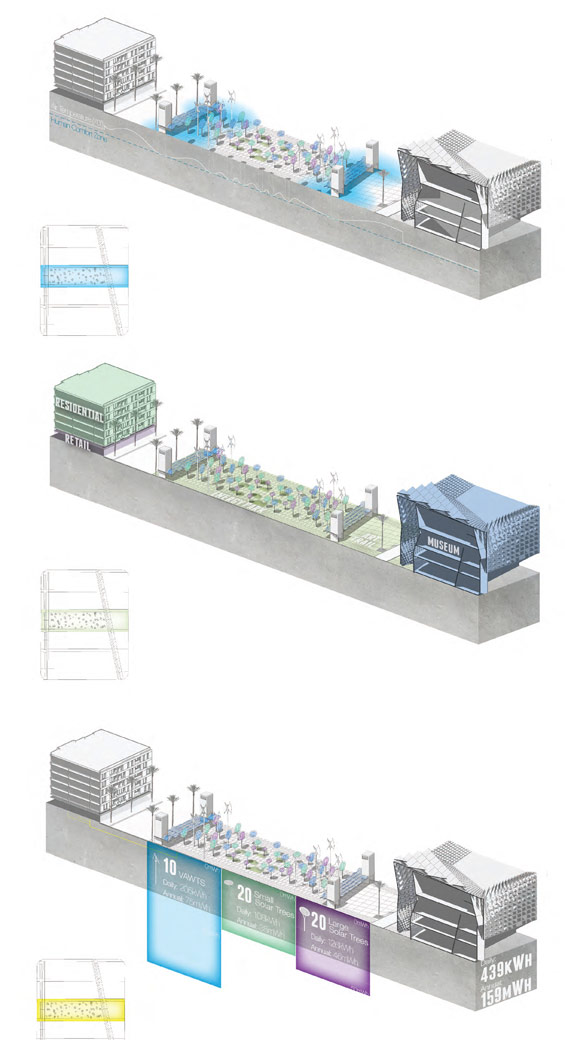
The Art Trail – a ‘power strip’, and the City Square show opportunities for civic space as catalyst of downtown activity. These spaces can bring literal and figurative energy downtown through a partnership between public and private entities. The spaces allow for place-based expression through the arts, and offer sustainable desert practices with energy generation, minimized water use and the creation of shade.
Power Strip / City Square | Las Vegas USA | UNLV Downtown Design Center
Images & Text Credit | UNLV Downtown Design Center
Ken McCown
Esther Garcia
Nasar Saghafi
Phil Zawarus


